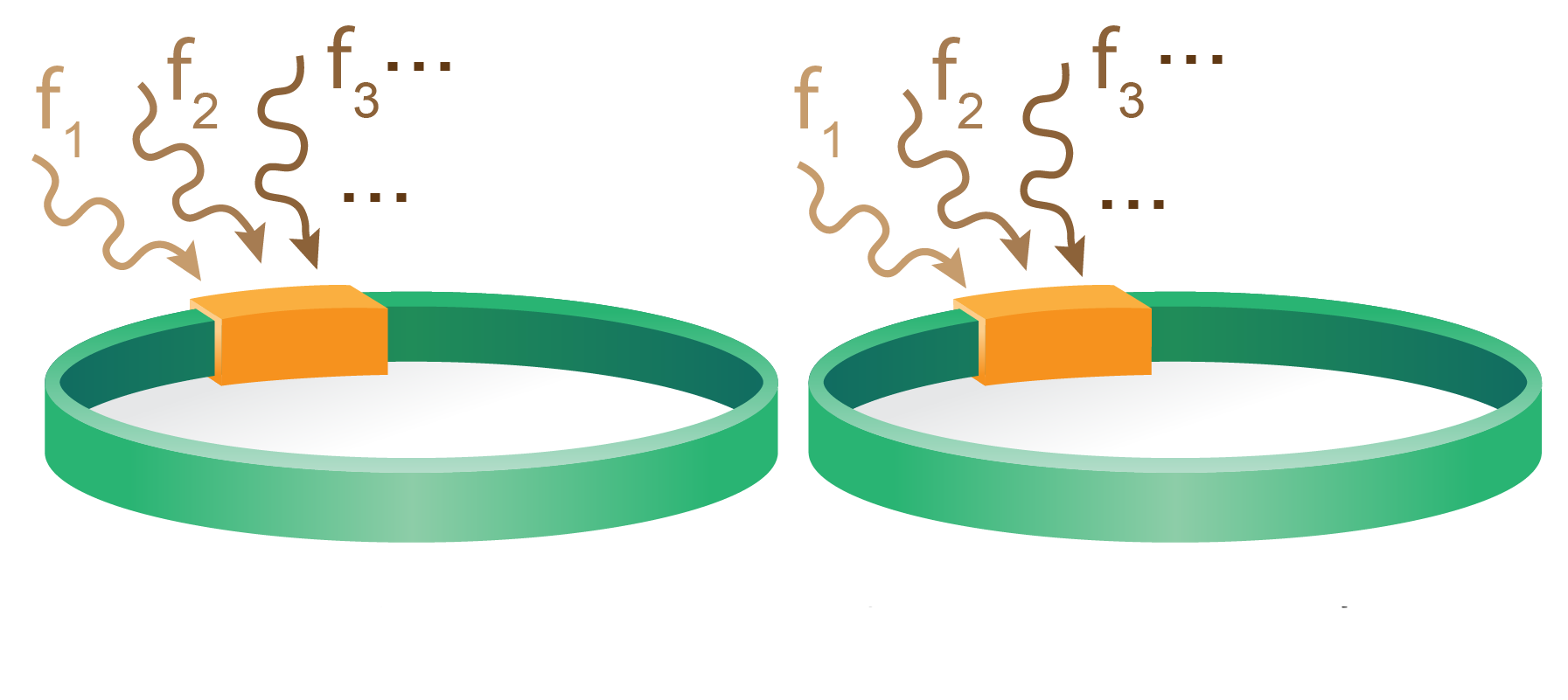 |
Avik Dutt, an assistant professor in the Department of Mechanical Engineering and the Institute for Physical Science and Technology, and director of the Fearless Optics, Quantum Engineering, and Technology (FloQuET) Lab, is the recipient of a new, highly competitive CAREER Award from the National Science Foundation that will support research aimed at clearing a major bottleneck that has held back applications in quantum simulations and sensing.
Quantum systems could outperform classical systems in applications such as modeling complex materials, and in building ultraprecise sensors. But scaling fragile quantum systems to hundreds or thousands of "modes" or channels has proved difficult.
The conventional way to increase the number of modes runs into challenges, such as an increase in the size of these systems, the loss they experience, and the number of signals needed for their control and readout. Dutt, however, has found a way to overcome these challenges by harnessing unconventional ideas related to “synthetic dimensions.”

A photonic molecule formed by coupling two rings. [Illustration courtesy of Avik Dutt/FloQuET Lab].
With support from the NSF award, Dutt and his team will develop their approach, potentially opening the door to fascinating new applications.
Dutt’s FloQuET Lab focuses on manipulating photons—the quantum particles of light—for applications in networking, sensing and simulations, and for studying fundamental physics involving nonlinear optics and high-dimensional systems.
Experiments with synthetic dimensions, he said, could pave the way for a variety of novel devices and technologies.
Central to Dutt’s project is the innovative use of nanophotonics for implementing synthetic dimensions. Synthetic dimensions, which utilize properties like frequency or spin of photons and atoms, are emerging as a powerful tool for building analog quantum simulators.
Such simulators literally create analogues—or one-to-one maps—of complex materials onto a different but fully controllable experimental platform, thus providing new insights and better understanding of the original complex material that is challenging to create, model, and understand. While previous implementations of synthetic dimensions have been limited to classical scenarios and meter-scale off-chip macroscopic systems, the FloQuET lab’s work will integrate these dimensions on millimeter-scale chips using low-loss nanophotonic technologies, extending their capabilities to the quantum realm.
Rigorous theory and preliminary experiments on a new kind of synthetic dimension were published by the team in a Nature Physics paper earlier this year. Dutt’s team showed that by driving a photonic system at multiple different frequencies, several synthetic dimensions could be generated simultaneously in a scalable fashion on mass-manufacturable chips, without increasing space requirements or nanofabrication complexity. Remarkably, the quantized movement of photons in the system remains robust in the presence of substantial amounts of loss. This approach would enable the realization 3D and even 4D or 5D phenomena that were thought to be mathematical games but can now be realized experimentally.
The research supported by the NSF grant will not only advance quantum simulation but also holds promise for quantum-enhanced sensing. By creating new nanophotonic synthetic dimensions and developing novel techniques for their characterization, Dutt’s work could lead to the development of robust photonic devices that harness fundamental physics concepts for engineering applications.
In addition to research, Dutt is committed to advancing public understanding and education in quantum science. As part of his CAREER award, he will organize Wikipedia editathons in collaboration with university libraries and the undergraduate quantum association, aimed at increasing the representation of quantum science and scientists, particularly women, on the platform. He is also creating a course on Engineered Quantum Systems in the mechanical engineering curriculum, set to debut in Fall 2024, to provide students with cross-disciplinary training in practical quantum technologies beyond computing.
Dutt is the latest UMD mechanical engineering faculty member to receive the award, joining previous recipients Don DeVoe, Hosam Fathy, Samuel Graham, Jr. (Dean, A. James Clark School of Engineering), Katrina Groth, Jin-Oh Hahn, Ken Kiger, Johan Larsson, Elisabeth Smela, Jelena Srebric, Ryan Sochol, Eleonora Tubaldi, and Miao Yu.
The CAREER Award is NSF's most prestigious honor for early-career faculty who have the potential to serve as academic role models in research and education and to lead advances in their fields.
Related Articles:
Clark School Faculty Receive CAREER Awards
Sochol Receives E. Robert Kent Outstanding Teaching Award for Junior Faculty
3D and Beyond: UMD Researchers Explore Synthetic Dimensions
Six Clark School Faculty Receive 2024 DURIP Awards
Dutt is PI on NSF-Funded Quantum Research Grant
UMD’s Tubaldi Wins NSF CAREER Award
Maryland Engineers Awarded Grants to Address Humanity's Grand Challenges
Four Clark School Faculty Receive CAREER Awards
Fuge Receives NSF CAREER Award
Li Member of UMD Invention of the Year Award Winning Team
September 16, 2024
|

